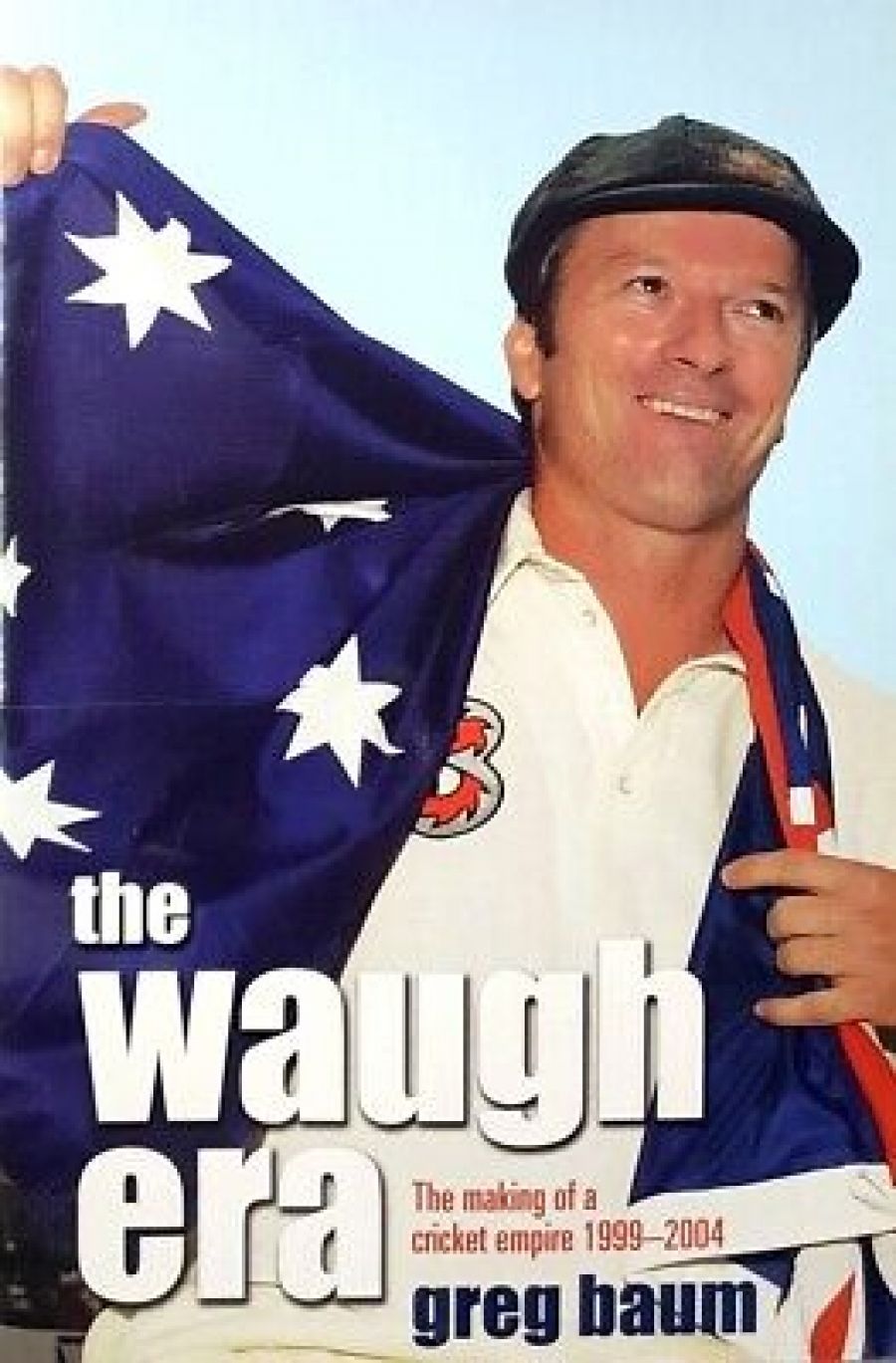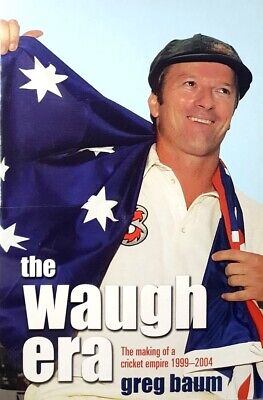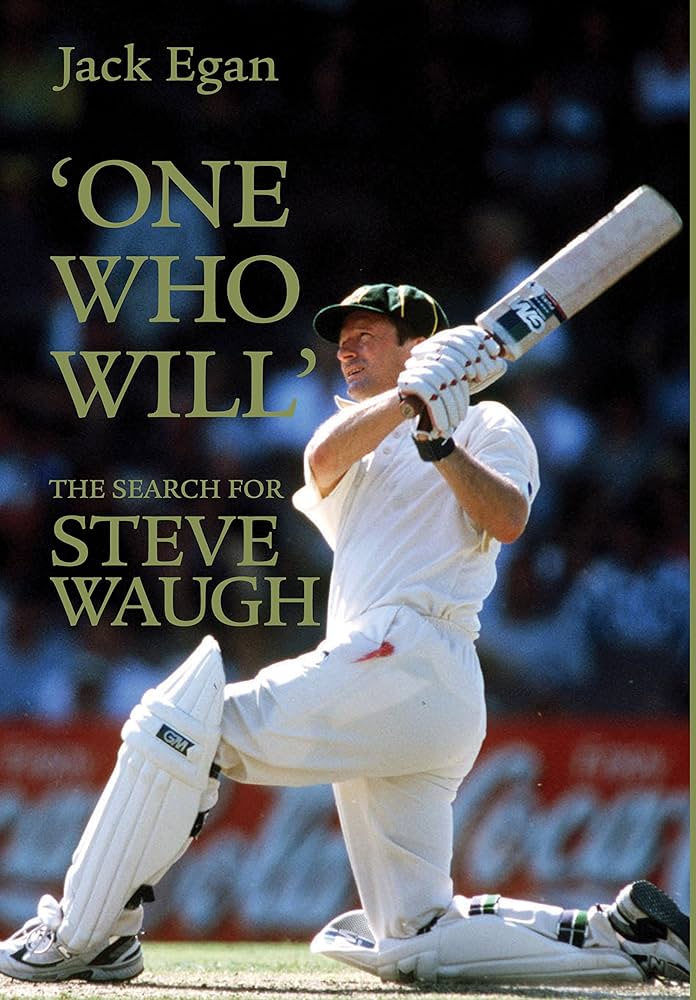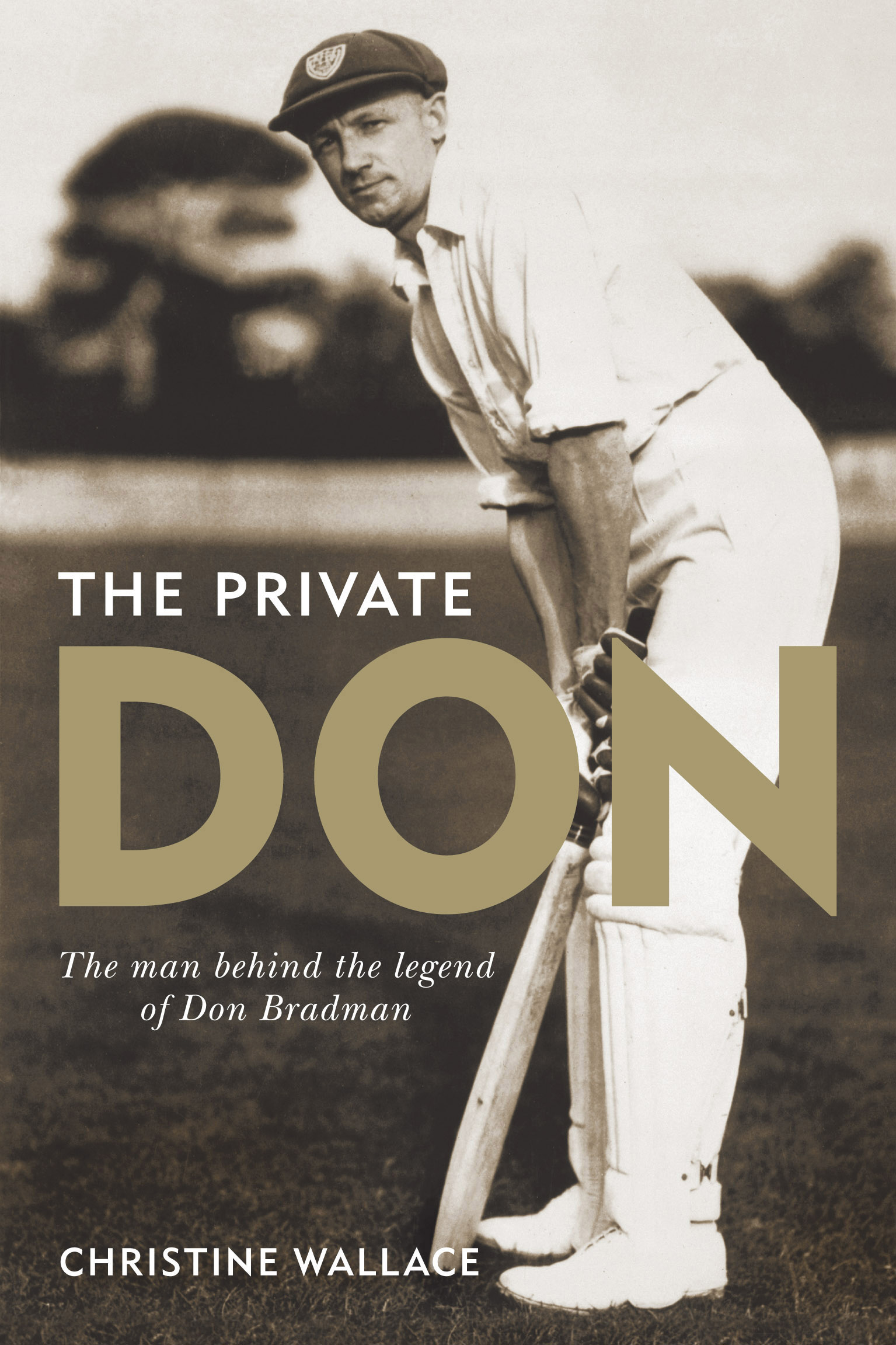
- Free Article: No
- Contents Category: Cricket
- Review Article: Yes
- Article Title: Hundreds and Thousands
- Online Only: No
- Custom Highlight Text:
‘Did you hear about the old man who turned 100?’ asked Sir Donald Bradman in a cheerful note to the journalist Johan Rivett in October 1968. ‘They asked him what it felt like. He said wonderful – I haven’t an enemy in the world. The buggers are all dead.’ That’s our Don: twenty years retired and still thinking in hundreds, eh? This century, it turned out, was one he could not overhaul: he was ninety-two when he died on 25 February 2001. But the job was done; the buggers were all dead. Bradman remains, to use Christine Wallace’s words from her new book The Private Don, ‘the best-ever player in the best-loved sport in the most sports-loving nation in the world’. Wallace’s book attests another quality: he remains a sporting media property without compeer.
- Book 1 Title: The Waugh Era
- Book 1 Subtitle: The making of a cricket empire 1999-2004
- Book 1 Biblio: ABC Books, $32.95 pb, 245 pp
- Book 1 Cover Small (400 x 600):

- Book 1 Cover (800 x 1200):

- Book 2 Title: 'One who will'
- Book 2 Subtitle: The search for Steve Waugh
- Book 2 Biblio: Allen and Unwin, $49.95 hb, 352 pp
- Book 2 Cover Small (400 x 600):

- Book 2 Cover (800 x 1200):

- Book 3 Title: The Private Don
- Book 3 Biblio: Allen & Unwin, $45 hb, 276 pp
- Book 3 Cover Small (400 x 600):

- Book 3 Cover (800 x 1200):

The Private Don offers a new perspective on Bradman. It is not – thank Don – yet another recitation of the Greatest Story Ever Bowled To. It distils instead a correspondence of twenty-four years between Bradman and Rivett, Rupert Murdoch’s first editor of significance of at the Adelaide News, then inaugural ‘editor emeritus’ (a phrase Rupert allegedly coined when he sacked Frank Giles from The Sunday Times: ‘E means you’re out, meritus means ya deserve it’).
This isn’t the Don we know; it covers Bradman’s Cincinnatus years in suburban Adelaide, when he was cricket’s number one administrator rather than its foremost personality, and also Rivett’s financial adviser. Wallace seeks to know Bradman by applying Plutarch’s wisdom that ‘very often an action of small note, a short saying, or jest, will distinguish a person’s real character more than the greatest sieges or the most important battles’. It’s a good idea; it also has problems. Bradman’s famous domestic contentment, The Private Don suggests, was no fond illusion: in his personal life, nothing much happened. Nor was Bradman given to illuminating retrospective judgments: there are no warm stories here about admired contemporaries, or mellow reflections on former days. This is actually an intriguing absence, although Wallace seems oblivious to it. She accepts Bradman’s self-description as ‘a simple country lad [who] wanted nothing more than to play cricket for fun and as a joy and recreation and loved the simple life in the country with birds and animals’ without demur or even comment; yet it is surely an idiosyncratic conception of cricket that mentions ‘birds and animals’ rather than team-mates.
The tone of the letters is a mix of the friendly and the formal. Rivett was an instinctive liberal who travelled widely, Bradman a natural conservative who scarcely left home: there is a fair bit of gentle political sparring along these lines. Rivett was a keen cricket enthusiast, Bradman the game’s greatest practitioner: many exchanges, as you would expect, involve the former proposing and the latter disposing. In some sections, Wallace goes a long way on very little: the pages spent trying to decrypt Bradman’s financial advice and political musings seem largely pointless. The small notes, short sayings and jests turn out to be little more.
Only twice does Bradman drop his guard, once in sorrow, once in anger. both at perceived insults. The most moving sections of The Private Don concern Bradman’s relations with his son, John, whose childhood was blighted by polio and whose adolescence was prolonged by depression. Bradman, solicitous and forbearing to begin with, steadily soured; when John flirted with the 1960s counterculture and even grew a beard, father and son became irreconcilable. Finally in March 1972, feeling the pressure of his patronymic, the younger Bradman became John Bradsen.
Bradman could make nothing of his son’s antagonism towards ‘the system, the establishment or something’. To the name change he would return again and again: it was ‘a deep wound which I will have to bear silently until the end’, evincing ‘an apparent hatred of the legacy I have given him in my name and a detestation for all the things I believe in and stand for’. Bradman was convinced that ‘eventually the full magnitude of the heart break he has caused will dawn on him’, although also that ‘I shall carry this cross to my grave’.
There is something touching about these passages: it is a generational conflict that might have befallen any family of the period. But the limits of Bradman ‘s empathy are also rather starkly revealed. Quick to lament the burdens of a fame that, to a degree, was of his own making, Bradman would not countenance John’s complaints about a reflected renown that was not. It is a strange failure of imagination.
Bradman reserved his most crimson rage, however, for former team-mate Jack Fingleton when the latter sent Rivett a copy of a new book of his with the suggestion, a little cheeky, that he review it. Catholic Fingleton and his co-religionist Bill O’Reilly were famously agnostic where Bradman was concerned, the roots of their disagreement lying in Bradman’s sauve qui peut response to Bodyline in 1932-33, but there is something rather disproportionate about the force of Bradman’s response to a transaction that does not directly concern him. The letter’s fury survives Wallace’s rather clumsy paraphrase:
Bradman wrote to Rivett that, honestly and without bias, Fingleton’s letter reeked to him of jealousy, bigotry, envy and ego. Bradman thought it outrageous that Fingleton should ask Rivett to write a review. This was something of an overreaction on the part of Bradman, who went on to say that it was unsurprising Fingleton was not better known as a cricket writer in Australia at the time. He ridiculed Fingleton’s comment that he wanted his ‘cobbers’ in Canberra to know about his new book, saying he was glad Fingleton had some cobbers there: he only knew, he said, of one Fingleton had left in the cricket world and that, claimed Bradman, had to do with things in common other than cricket. He was presumably referring to Bill O’Reilly.
This is a most peculiar letter. Fingleton was, to be sure, an ambitious, brittle man with sometimes jaundiced views. but no cricket library worth the name is without Cricket Crisis (1946) and Brightly Fades the Don (1949). And: ‘Things in common other than cricket’? This isn’t easy to reconcile with Wallace’s confident closing judgment that the correspondence contains ‘no whiff of the anti-Catholicism which has been an undercurrent of criticism promoted by his knockers’.
It would be unwise, however, to invest too much significance in the content of The Private Don. There is simply not enough of it. Wallace’s researches began for a feature article published in The Australian Magazine earlier this year; a feature article, frankly, is what they should have stayed. They reveal only that behind the private Don lay another even more private Don.
Steve Waugh, little less a private man than his distinguished antecedent, seems equally determined to remain so. He declined to cooperate with either cricket historian Jack Egan or journalist Greg Baum, whose new books have recently joined the growing pile concerning him and his era. Baum reports further: ‘A senior Australian player refused to contribute to this book because it was unauthorised. Seemingly, to his mind, there should be no biography, just autobiography and hagiography. Or perhaps there should just be money.’
This does not represent an insurmountable handicap. If anything, the opposite is the problem: Waugh’s period is so exhaustively documented and recorded, not least by himself in his tour diaries, that ‘One Who Will’ and The Waugh Years bog down in recapitulating recent and all-too-familiar history. Thus sentences like this from Egan: ‘In Melbourne, on a wicket described as “sub-standard”, West Indies made only 280, Australia replied with 242, then Richie Richardson, with 122 scored in six and a half hours, guided the West Indies to 9 for 361, leaving Australia with 400 to win.’
Egan’s book, unfortunately, doesn’t rise far above this, and the personal tangents his book takes add nothing to it: who cares that he’s read Beyond a Boundary or toured India with the Grey Kangaroos? There are, moreover, some strange omissions: Australia’s progress in the group games in the 1999 World Cup, when Waugh’s captaincy was under intense scmtiny, is skated over in nine lines; Australia’s defeat in India in 2001, possibly the best Test series of modern times is glanced at in two pages.
Baum’s book, fortunately, flowers in its second half, where he discusses Waugh thematically rather than chronologically. Baum, readers of The Age will know, is a gifted phrasemaker and a sharp observer; he has an appealing touch, even, of Waugh’s own gruffness. He might have let himself go a little further and developed points at which he hints. ‘Boorish, threatening and disruptive crowd behaviour was to become a constant of the Waugh era, and also a mark of the times,’ he comments at one point perhaps suggesting a relationship. ‘Cricket has not had a technology debate like golf and tennis but maybe it needs one,’ he muses later, moving on before it has quite sunk in. But he is admirably even-handed, and also draws wickedly accurate distinctions. Watching Waugh’s Australians swan round at 2002’s Laureus Awards, Baum confides: ‘It was hard to escape the feeling that this was not so much sportspeople getting Laureus awards a Laureus awarding itself sportspeople.’
Waugh’s views, meanwhile, await his own autobiography. He also still thinks in hundreds. Egan informs us, in fact, that contemporaries call him ‘Fairy Bread’: ‘He only deals in hundreds and thousands.’


Comments powered by CComment